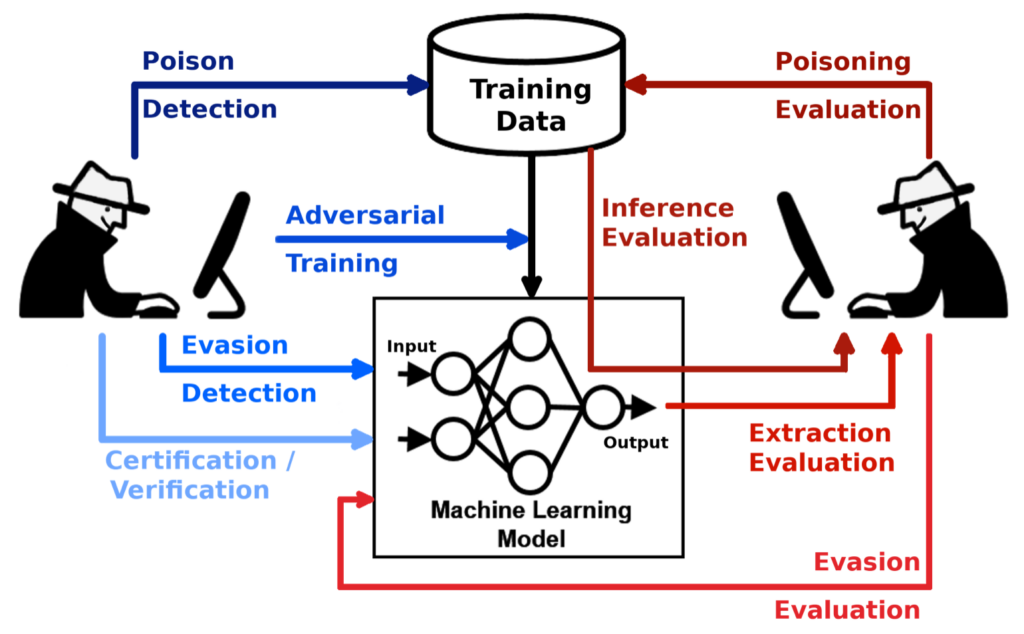
Adversarial policies refer to a concept in artificial intelligence (AI) where an agent or system is designed to act in a way that is intentionally adversarial or hostile towards another agent or system. This concept is often used in the context of reinforcement learning, where agents are trained to interact with each other in a competitive environment.
In the field of AI, adversarial policies are commonly used in scenarios where multiple agents are competing for limited resources or trying to outperform each other in a given task. These adversarial interactions can take many forms, such as competitive games, negotiation scenarios, or strategic decision-making processes.
One of the most well-known applications of adversarial policies in AI is in the field of generative adversarial networks (GANs). GANs are a type of neural network architecture that consists of two separate networks – a generator and a discriminator – that are trained to compete against each other. The generator network is tasked with creating realistic-looking data samples, while the discriminator network is trained to distinguish between real and fake data samples. Through this adversarial training process, the generator network learns to produce increasingly realistic data samples, while the discriminator network learns to become more accurate at detecting fake data samples.
Another application of adversarial policies in AI is in the field of multi-agent reinforcement learning, where multiple agents are trained to interact with each other in a competitive or cooperative manner. In these scenarios, each agent is designed to learn an optimal policy that maximizes its own reward, while also taking into account the actions and strategies of other agents. This can lead to complex and dynamic interactions between agents, where they must constantly adapt and evolve their policies in response to the actions of their opponents.
Adversarial policies can also be used in the context of security and defense applications, where AI systems are trained to detect and defend against adversarial attacks. For example, in the field of cybersecurity, adversarial policies can be used to train AI systems to detect and respond to malicious attacks or intrusions in real-time. By simulating adversarial scenarios and training AI systems to recognize and counteract these threats, organizations can improve their overall security posture and reduce the risk of cyber attacks.
Overall, adversarial policies play a crucial role in the development and advancement of AI technologies, enabling agents and systems to learn and adapt in complex and competitive environments. By training AI systems to interact with each other in adversarial scenarios, researchers can explore new approaches to solving challenging problems and develop more robust and resilient AI systems.
1. Adversarial policies are important in AI as they help in training models to be robust and resistant to attacks from malicious actors.
2. Adversarial policies are used in reinforcement learning to simulate different scenarios and test the performance of AI agents in challenging environments.
3. Adversarial policies can be used to improve the generalization capabilities of AI models by exposing them to a wide range of possible inputs.
4. Adversarial policies are crucial in the field of cybersecurity, as they can help in identifying vulnerabilities in AI systems and developing defenses against potential attacks.
5. Adversarial policies are also used in adversarial machine learning, where they are employed to generate adversarial examples that can fool AI models and expose their weaknesses.
1. Adversarial attacks in image recognition systems
2. Adversarial training in reinforcement learning
3. Adversarial examples in natural language processing
4. Adversarial policies in game theory and multi-agent systems
5. Adversarial defense mechanisms in AI security
6. Adversarial reinforcement learning for robust decision-making
7. Adversarial machine learning for detecting and preventing cyber attacks
8. Adversarial policies in adversarial machine learning research
9. Adversarial policies in generative adversarial networks (GANs)
10. Adversarial policies in autonomous driving systems for handling unexpected scenarios.
There are no results matching your search
There are no results matching your search